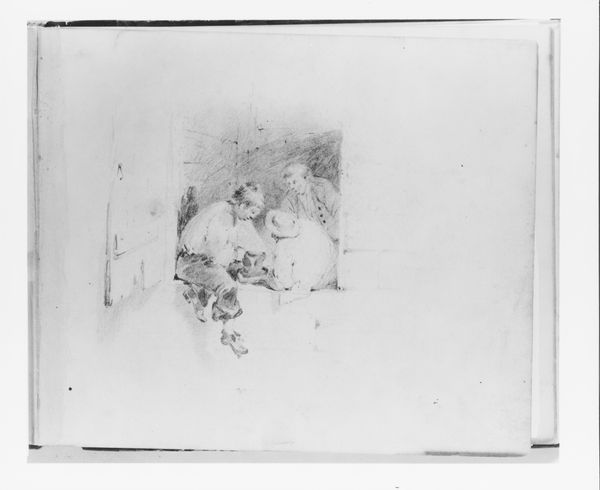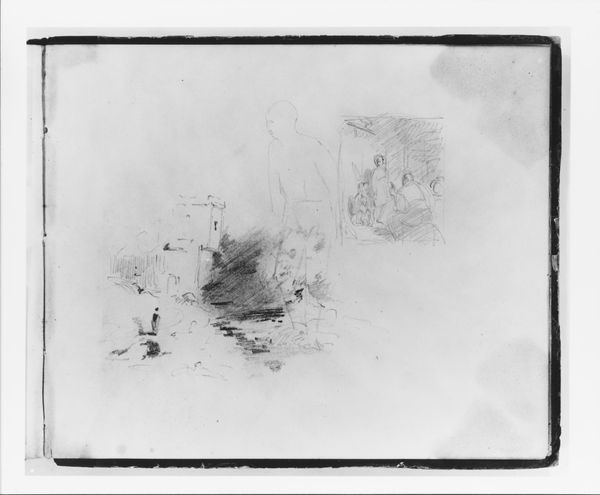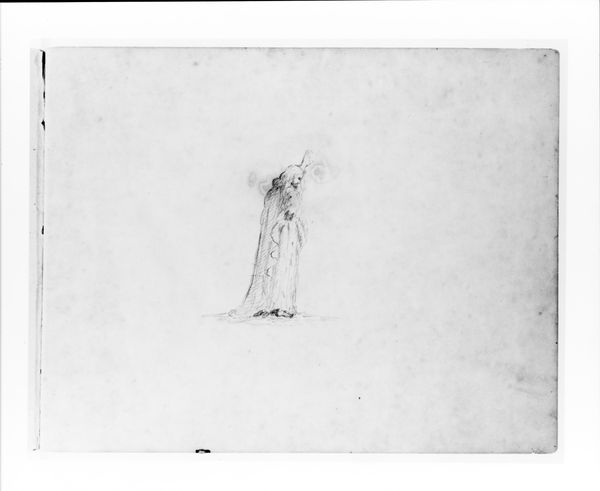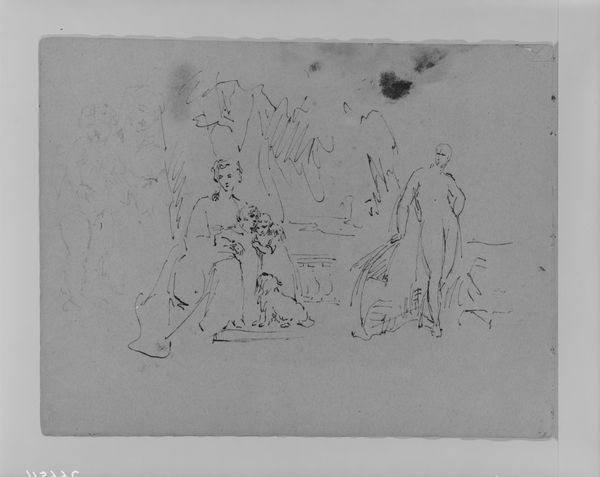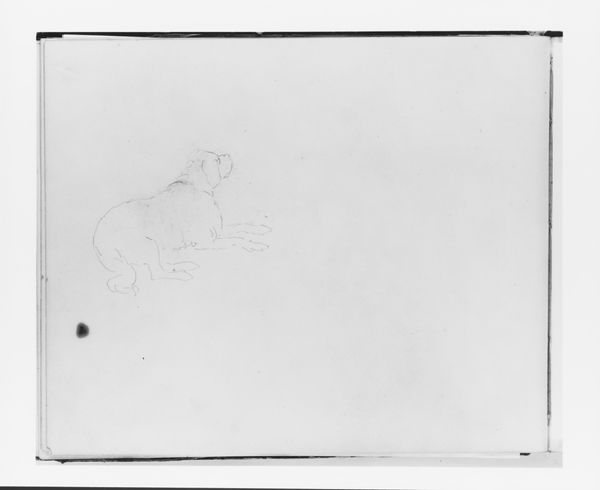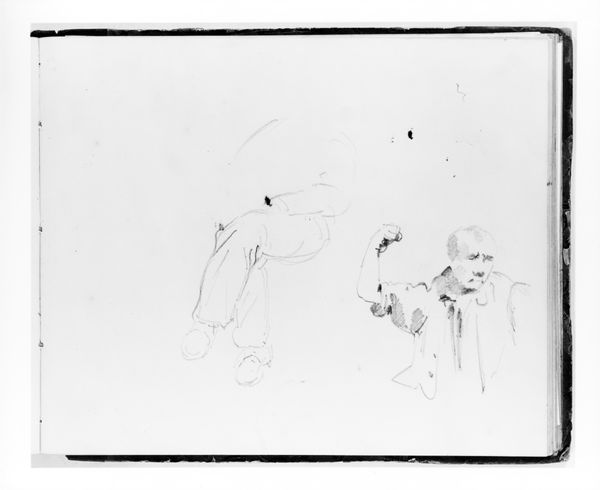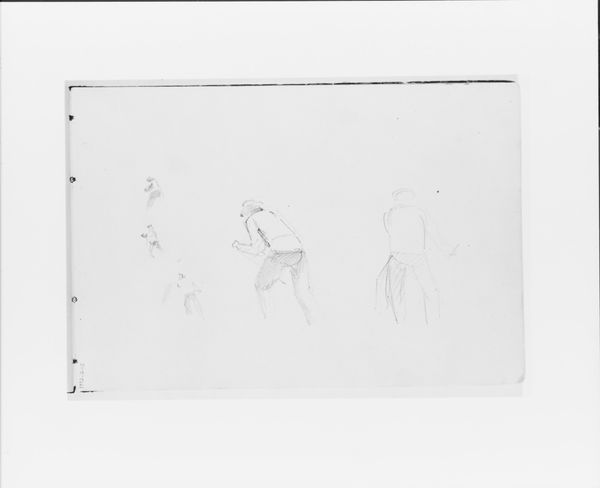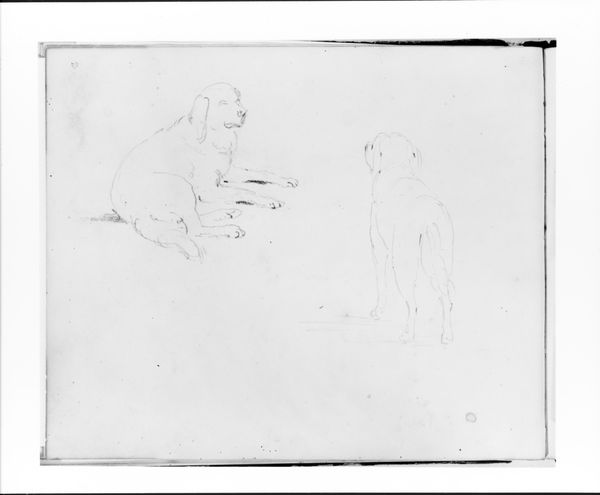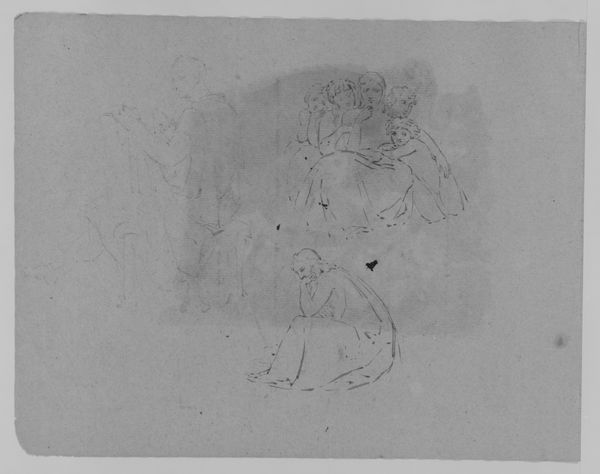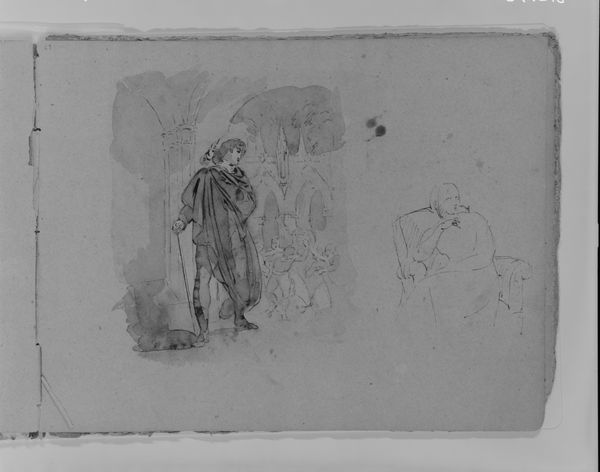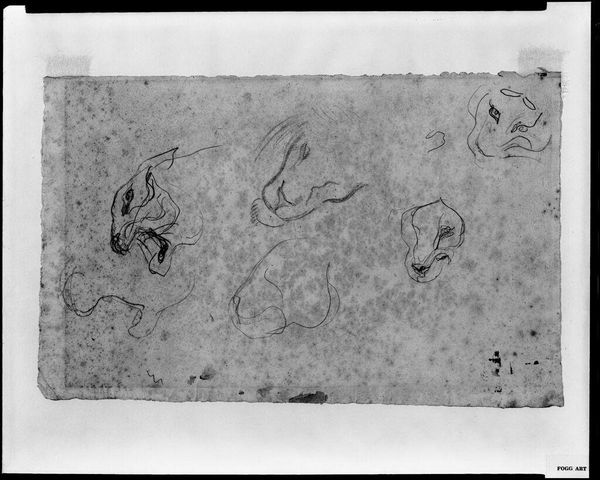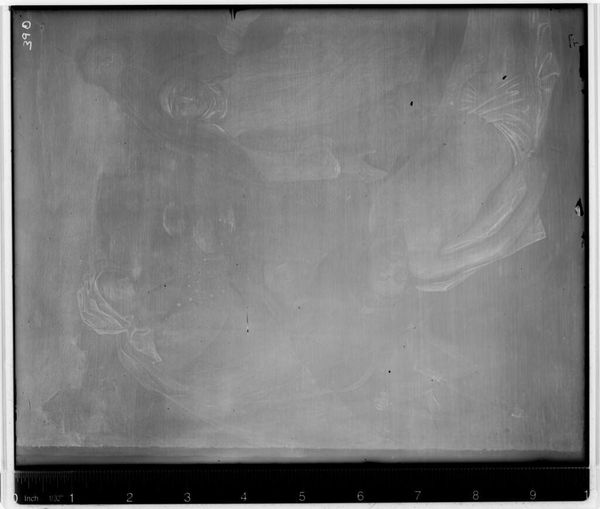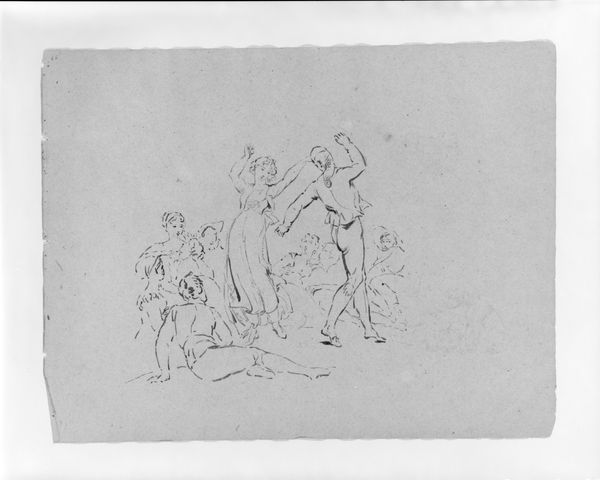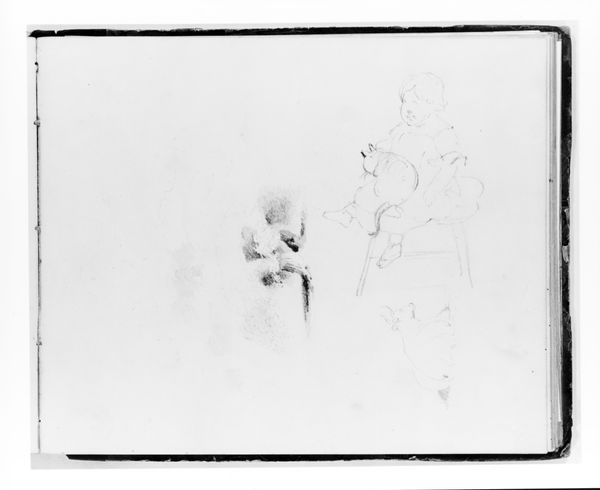
Three Studies: Standing Figure Facing Left; Interior with Figures and a Dog; Landscape (from Sketchbook) 1835 - 1839
0:00
0:00
drawing, pencil
#
portrait
#
drawing
#
monochromatic tone
#
organic shape
#
sculpture
#
landscape
#
figuration
#
dark monochromatic
#
sketch
#
romanticism
#
pencil
#
monochrome photography
#
men
#
monochrome
#
natural form
#
monochrome
Dimensions: 6 5/8 x 8 in. (16.8 x 20.3 cm)
Copyright: Public Domain
Curator: Isn’t that interesting! The page practically glows with light, even though it's just pencil on paper. It feels very…ephemeral. Editor: We're looking at a page from a sketchbook by Francis William Edmonds, dating from around 1835 to 1839. It’s titled "Three Studies: Standing Figure Facing Left; Interior with Figures and a Dog; Landscape." Curator: Three for the price of one, eh? I love seeing these glimpses into an artist's mind at work. It's not polished, not performative. Just…thoughts taking shape. The standing figure, for example—there's such a casual grace to it, even unfinished. It reminds me a bit of a quicksilver dream, just out of reach, ready to change the scene. Editor: Exactly. Sketchbooks offer such direct insight into an artist’s process. Edmonds was working during a time of significant shifts in American art and society. These sketches, with their focus on everyday scenes and figures, reflect a growing interest in depicting American life and character. Curator: The dog adds such a touch of homey warmth. Is he chasing something, or just there for ambiance? Sometimes I think those background details are even more revealing. He might be there to be his familiar, even sentimental idea of the American dream, but what can you see in the landscape itself. Is it any more than a scribble on a page? Editor: That contrast is really key to the Romantic impulse, where raw nature becomes a symbol of our interior, of ourselves! And what do you mean when you say: dream of home and chasing an idea of ourselves, as humans, within the nation? It's a balancing act to be an idea of who one wants to be vs the people they truly are when they're out and about. So why wouldn't that translate onto the canvas? I wonder who saw the dreams of those everyday figures represented or dismissed in them. Curator: It all feels rather fragile to me; these people are sketched as barely-there characters and could represent just anyone going through those everyday scenes. Thank you. I see Edmonds wasn’t merely capturing, but also interpreting, translating emotions onto paper. Editor: Indeed. And the very act of sketching, making these fleeting, preliminary images, could be its own act of radical vision.
Comments
No comments
Be the first to comment and join the conversation on the ultimate creative platform.
